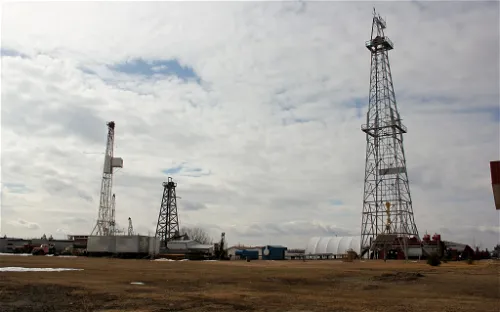Canadian Energy Museum and its collection
Leduc No 1, a significant crude oil discovery, was made near Leduc, Alberta, Canada on February 13, 1947. This discovery provided the geological key to Alberta's most prolific conventional oil reserves, leading to a boom in petroleum exploration and development across Western Canada. This historical event marked a turning point in the province's economy and is a key part of the museum's narrative.
Production of Leduc No 1
Before being decommissioned in 1974, Leduc No 1 produced 317,000 barrels of oil and 323 million cubic feet of natural gas. It was part of the Leduc Woodbend oilfield, which has produced over 300 million barrels of oil in total. This impressive production data is a testament to the significance of the Leduc No 1 discovery and its impact on the oil industry.
Transformation of Alberta's Economy
The discovery of Leduc No 1 had a transformative effect on the Alberta economy. Oil and gas supplanted farming as the primary industry, leading to the province becoming one of the wealthiest in the country. This shift in economic focus is a significant part of Alberta's history and is well-documented in the museum.
Science & Technology History & Anthropology Industrial heritage Geology































































